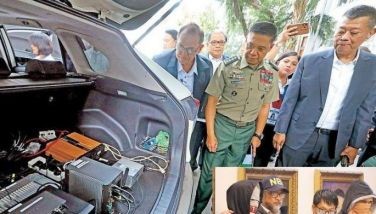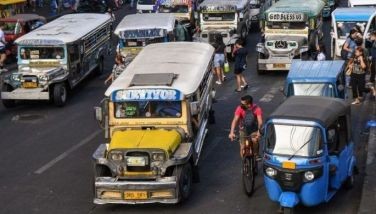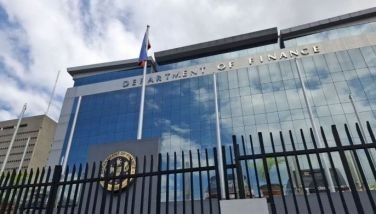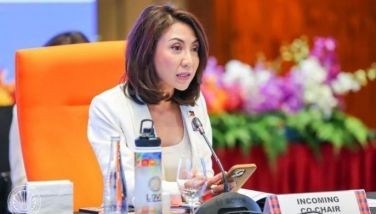Philippines to UN rights council: Marcos gov't doing 'transformation' reform of justice, law enforcement
MANILA, Philippines — The administration of President Ferdinand Marcos Jr. is undertaking a “transformational reform” of its justice and law enforcement sectors, Justice Secretary Jesus Crispin Remulla told member states of the United Nations Human Rights Council.
Human rights watchdogs, however, stressed there is a disconnect between the government’s rhetoric and the situation on the ground.
At the 51st session of the UN Human Rights Council, Remulla claimed the Marcos administration has a “deeply human approach” to law enforcement and the internationally-condemned “war on drugs.” He cited the president’s reminder to the Philippine National Police that the use of force must only be utilized when necessary.
“President Marcos has refocused the anti-illegal drug campaign — tackling the source of the problem. He has stated that criminal masterminds must be apprehended and punished, not small scale users on the street,” Remulla said, adding the government’s focus is the rehabilitation, prevention, and assistance to victims and their families.
Remulla added the justice department is aiming to have 5,000 persons deprived of their liberty released by June 2022, working closely with the Department of the Interior and Local Government and the Supreme Court, and streamlining the investigative and accountability processes of prosecutors and law enforcement agents.
“We want to inject human rights into every step of our law enforcement and judicial processes… We are reforming our system to deliver what our people deserve — real justice in real time,” he said.
The justice chief also called on civil society organizations, witnesses, and families to provide information and file appropriate cases that will help the DOJ-led review panel, which is created to re-examine cases that occurred in the context of the government’s anti-illegal drug campaign.
‘Dire’ situation remains
Human rights groups, however, said that "drug war" killings, red-tagging of rights defenders and government critics, and other violations continue without let up.
“The human rights situation in the Philippines remains dire. Domestic remedies remain largely ineffective in pursuing successful prosecution of perpetrators of extrajudicial killings and other violations,” Karapatan secretary general Cristina Palabay said in an oral statement delivered during the council’s session.
For Human Rights Watch senior researcher Carlos Conde, Remulla said things that the international community that has been monitoring the situation in the Philippines wants to hear.
“But the forces on the ground are doing something else altogether. There is a disconnect between rhetoric and what’s happening on the ground,” Conde said in an interview with ABS-CBN News Channel Thursday.
“The challenge now for the Human Rights Council is to really make sure that the government makes good on those commitments,” he added.
HRW earlier criticized the council for failing to pass a resolution that will ensure continued on-the-ground scrutiny of the country’s human rights situation.
Joint Programme
The Office of the High Commissioner for Human Rights and the United Nations resident coordinator for the Philippines welcomed the commitment of the Marcos administration to enhance the implementation of the UN Joint Programme.
The program, signed in July 2021, provides technical assistance and capacity building to improve the human rights situation in the Philippines.
“At the same time, I cannot help but to note that polarization and a deficit of trust among different actors remains a critical obstacle,” said Gustavo Gonzalez, UN resident coordinator for the Philippines.
In a report released last month, the UN rights office said the Philippines has taken initiatives to advance accountability for human rights abuses, but access to justice remains very limited.
“Numerous victims and their families still await justice. So, in the time remaining in the Joint Programme, together with other efforts, concrete progress on accountability is expected—to help bring about human rights reforms that will prevent recurring violations,” said acting UN rights office chief Nada Al-Nashif.
- Latest
- Trending






























